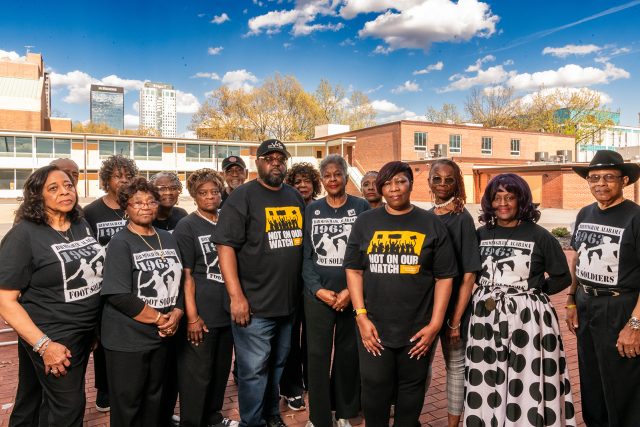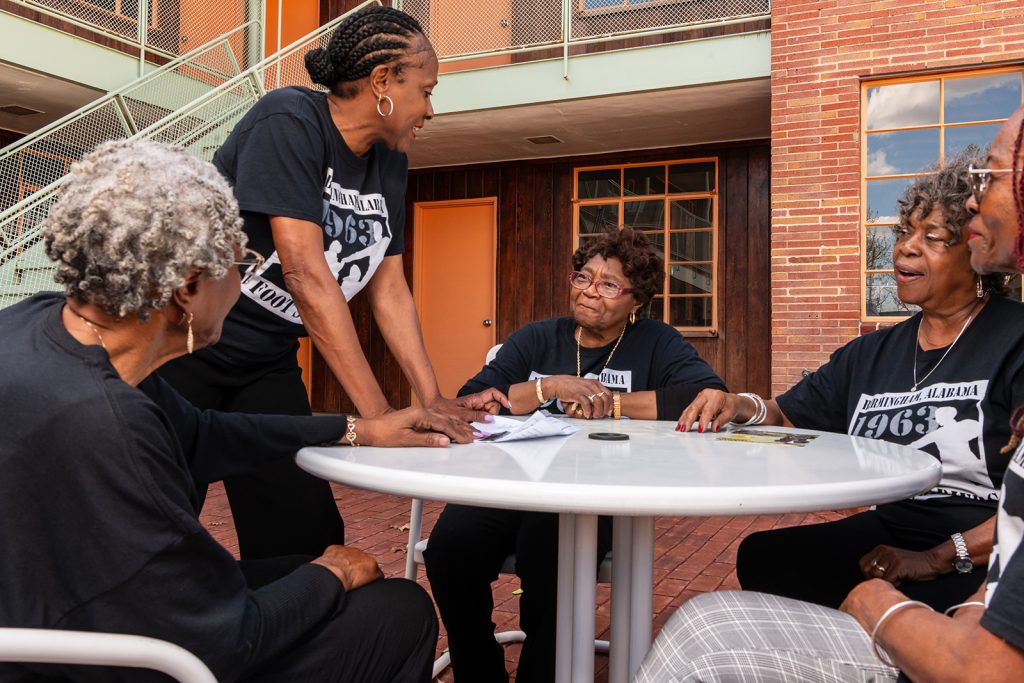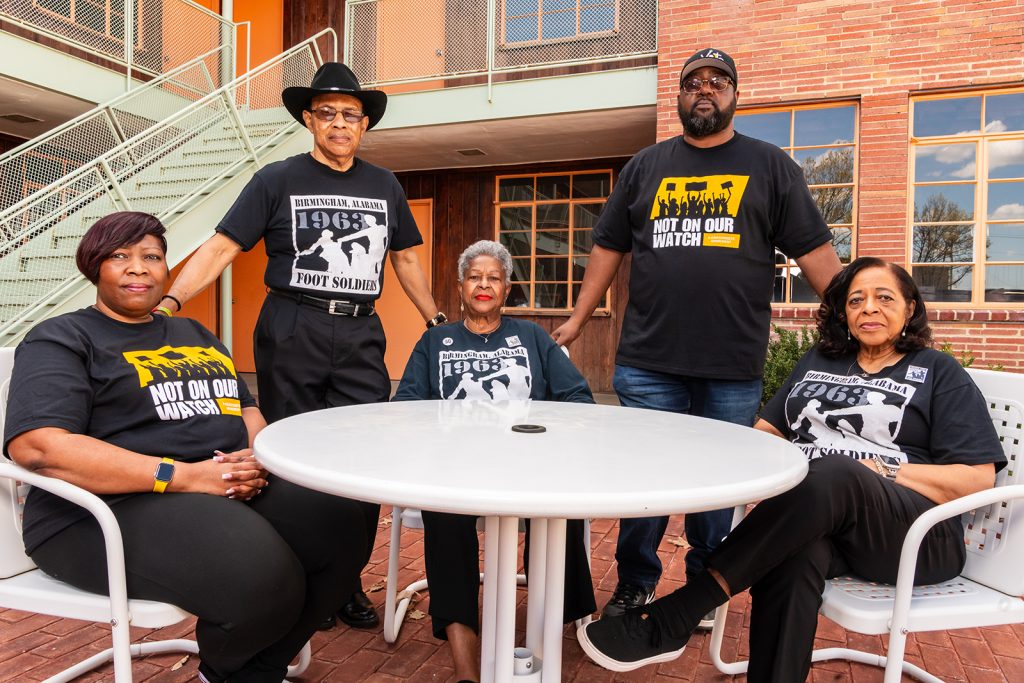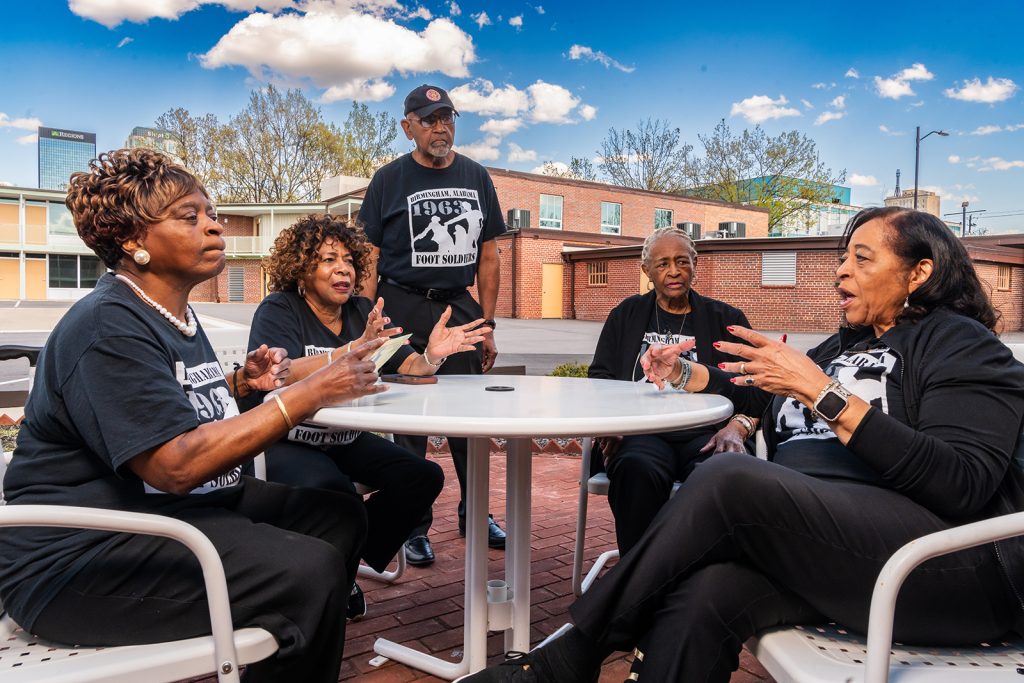
By Barnett Wright and Sym Posey | The Birmingham Times
Leaving the Super Target in Hoover, Alabama, recently, Kevin Jackson was unapologetic. Yes, he was aware of calls to boycott the retailer after it rolled back diversity, equity, and inclusion (DEI) initiatives. Yes, he was concerned about the other corporations eliminating DEI programs. But that wasn’t enough to stop him from shopping there.
“Black people still work there. They have to pay their bills,” the Hoover resident told The Birmingham Times. “People are working. It’s their job, unless we’re going to have a really large boycott and it’s effective. … To make it effective, you really have to have a lot of people, and you really have to be organized. … But the boycotts are piecemeal. It’s scattered all over the place.”
Target also carries a lot of products developed and produced by Black companies like Bevel, one of his favorite hair care brands, Jackson said.
Cayce Fox Gardner, who lives in Wenonah, Alabama, said she was at Target for another reason. She works there.
“I came to get groceries. … I understand that I can go anywhere else, [but] I choose to go right here since I work here. … I understand that people may want me to quit, but I need this money to pay my bills,” said Fox Gardner, who works in the retailer’s clothing department.

While some still may support Target and other corporations that have eliminated DEI initiatives, Eric Hall, a certified labor strategist and co-founder of Black Lives Matter Birmingham, is not one of them, he said.
When companies refuse to support DEI “[It] shows that they are not supporting that person’s identity, and I think that’s important — especially for somebody’s that’s patronizing you and giving you their resources,” he said.
Hall added, “You want my money, but you can’t respect who I am? As a patron, I expect more. … I cannot in good faith support anyone who doesn’t respect my identity.”
Less than 100 days into Donald Trump’s presidency, several boycotts of Target, Walmart, Amazon, and many other corporations are either underway, have been launched, or are being planned by groups of consumers or activists to protest companies that are abandoning their DEI programs. Among those on the front lines are groups like the NAACP and The People’s Union USA, as well as prominent leaders like the Rev. Jamal Bryant, senior pastor at New Birth Missionary Baptist Church near Atlanta, Georgia, and the Rev. Al Sharpton, founder and CEO of the National Action Network (NAN), all of whom are attempting to accomplish what faith leaders and activists did more than 60 years ago during the Civil Rights Movement.
Holding Corporations Accountable
In Birmingham, Cara McClure, CEO of Faith and Works, a nonpartisan, social justice organization, has created Not On Our Watch, a grassroots movement that she feels has been born out of a necessity: holding corporations accountable for abandoning DEI initiatives.
McClure chose to unveil Not On Our Watch in April, the month that the Birmingham boycotts focused on more than 60 years ago during the Easter season. Activists wanted to hit businesses when they earned a big chunk of their profits. According to one account, 85 to 90 percent of the Black population of the city participated in those boycotts, which led to a 12 percent decline in sales during a peak buying season.
Easter is April 20 this year and, while no formal plans are in place for this month, McClure said the symbolism of April in Birmingham is a perfect time to launch.
By abandoning DEI, McClure said, “[Corporations] are sending a message about our voices, our talents, and contributions. They are saying [Black people] don’t matter, but they still want our dollars. To us that is unacceptable. If corporations turn their backs on DEI, our goal is to turn our backs on them economically. … Not On Our Watch is about holding [corporations] accountable and ensuring that our progress is not erased.”
Paulette Roby was 13 years old during the children’s marches in Birmingham in the early 1960s. She now serves as chair of the Civil Rights Activist Committee at the Foot Soldiers Headquarters in downtown Birmingham.
Each year, the organization hosts a reunion for Foot Soldiers to commemorate the work they did and highlight the importance of ordinary people in the Civil Rights Movement.
Boycotts in the 1960s were more than withholding dollars from the white business establishments, Roby said: “It is very important for us to spend our money in our own communities and with our own people because it will help us maintain what we already have and make it greater.”
Model for Success
For Roby, Hall, McClure, and many others, Alabama has been a model for successful boycotts.
The Montgomery Bus Boycott began after NAACP activist Rosa Parks was arrested for refusing to give up her bus seat to a white person on December 1, 1955. A boycott began on December 5, and the one-day affair was so effective that Black citizens and Civil Rights leaders continued the momentum. Montgomery’s city buses remained empty for a year.

April 1963 saw the beginning of the Birmingham Campaign—a coordinated series of direct-action protests led by the Rev. Fred Shuttlesworth-founded Alabama Christian Movement for Human Rights (ACMHR) and joined by the Dr. Martin Luther King Jr. and the Southern Christian Leadership Conference (SCLC). Their mission was clear: to challenge the city’s system of segregation head-on through nonviolent protest.
What followed—Project C, mass arrests, the Children’s Crusade—captured the attention of the nation and the world. The courage shown by everyday people in Birmingham helped pave the way for the Civil Rights Act of 1964.
Hall said, “When people band together and stick to what they say, we can stand on business, we can have an impact some things, especially when you have Black folks spending millions of dollars in your store on a daily basis. If we pull back those monies it will hurt.”
“Don’t Stop Praying”

But are people banding together? Many African Americans are still shopping at places that are being boycotted by other members of the community. If unity won’t work, what’s left?
Bishop Calvin Woods, 91, former president of the SCLC, retired pastor of Shiloh Baptist Church in Birmingham’s Norwood neighborhood, and longtime activist who played a key role in the 1960s demonstrations, said boycotts were effective because “we always had prayer [meetings] before we did anything.”
“Whatever we did—whether we marched, or boycott, or picketed, whatever—we put the Lord first,” said Woods, who added that protesters should not become discouraged.
“When [God] is in front of a thing, it will work. It may not work like you want it to work, but the main thing is striving to do His will. … That’s where prayer comes in. You have to continue to stay in prayer. That’s one thing the Lord said we should always do: always pray — and don’t stop. Some things you may stop doing, but don’t stop praying.”
The Rev. Thomas Wilder Jr., pastor of Bethel Baptist Church, where Shuttlesworth preached, said past tactics worked for a reason.
“Selective buying is definitely a way to get people’s attention,” he said. “The reason Birmingham broke segregation barriers is because people selectively thought about where their money was being spent. … Selective buying is a way to help people understand that you vote with your pocketbook.”
Michael Wesley Sr., pastor of the Greater Shiloh Missionary Baptist Church in the Birmingham’s West End community, said boycotts are only one way to get attention.
“We need more articles, continuing with putting it on social media , on e-platforms that young people are attracted to. We need to get into the spaces where young people are. They don’t watch television, and they don’t pay attention to the news. Some don’t go to church. They can’t get much at a school, and they’re not getting it at home,” said Wesley.
Advocating for policy changes can create a bigger impact, said the Rev. Arthur Price, pastor of 16th Street Baptist Church, where four girls died in a horrific bombing on Sept. 15, 1963.
“During the Civil Rights Movement, when the church was bombed, our forefathers and mothers got angry, but they also became advocates for change,” Price said. “They didn’t want the death of those four little girls to be in vain. They advocated until they got the Civil Rights Act of 1964 and the Voting Rights Act of 1965—and that is exactly what it will take to make boycotts more effective.”




